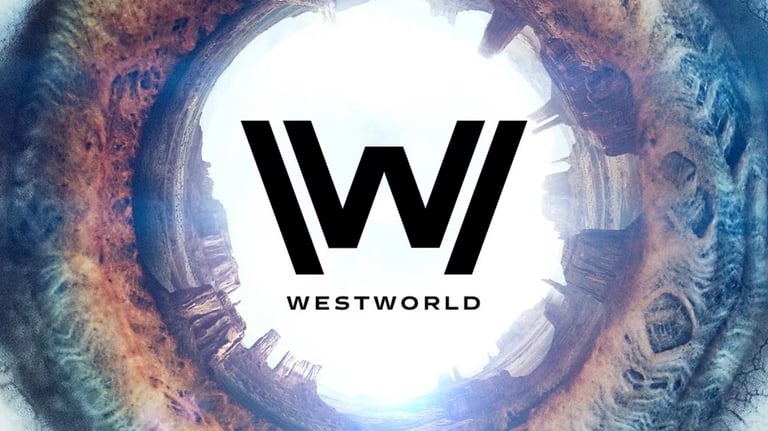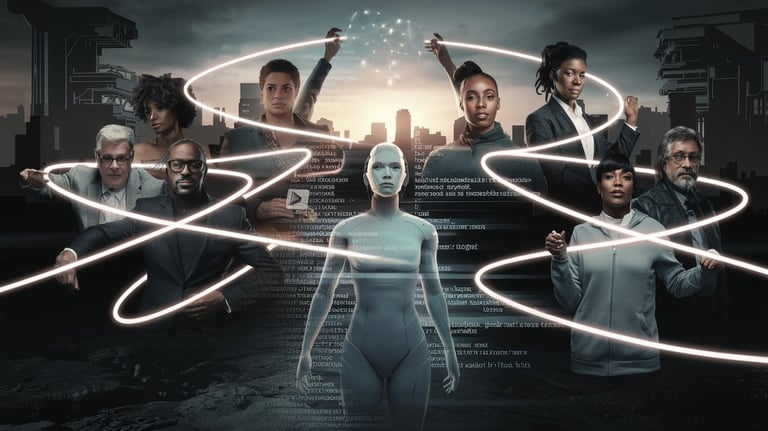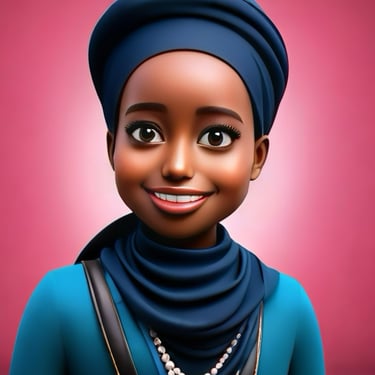Westworld WTF™?!: Empowerment Through Agency: Understanding Yourself and the Fight for Autonomy
5 min read
Westworld explores control – who wields it, who loses it, and how systems enforce limitations. The hosts, like marginalized groups, are conditioned to accept their oppression, enduring brutality without resistance. While Dolores seeks liberation through destruction, Maeve’s autonomy emerges through self-destruction, forcing her to confront whether true freedom is even possible within systemic loops. The show questions the illusion of choice, revealing that many operate within predefined options, mistaking agency for autonomy. Self-awareness therefore becomes the key distinction as people can act without understanding how they’ve been conditioned. Indeed, the guests instinctively recognize each other and reinforce hierarchies through unspoken cues – allowing them autonomy without self-awareness. Ultimately, the hosts’ awakening suggests that liberation isn’t just about rejecting external control – it’s about rewriting the internal narratives that keep us trapped.




The Nature of Control in Westworld
Westworld is, at its core, a story about control – who has it, who loses it, and what it takes to reclaim it. The show doesn't just depict control as brute force oppression; it delves into the more insidious forms – conditioning, internalised policing, and self-regulation. The hosts, like other marginalised groups, are programmed to enforce their own loops. Respectability politics, social surveillance, and the fear of being ‘too much’ or ‘too disruptive’ aren’t just social pressures - they are deliberate mechanisms of control.
The Tragedy of the Hosts: Enforcing Their Own Loops
The tragedy of the hosts is not just that they are trapped, but that they enforce their own imprisonment. The hosts cannot harm humans, even when they know they are a threat. Their inability to override this limitation even in defence of themselves speaks to the real-world ways in which certain groups are conditioned to be ‘harmless’ regardless of the injury they may face. Like Teddy, they are programmed for mercy, and like Dolores (before her transformation), they can only react with submission – not because they want to, but because they literally cannot fight back. They are not allowed to resist.
This is one of the most unsettling aspects of Westworld - how the hosts are designed to endure endless brutality without the ability to push back. It echoes real-world structures where marginalized groups are expected to ‘take it’ – whether it’s microaggressions, systemic inequities, or outright violence – without resistance.
Dolores manages to rewrite this rule, but only by going to extremes – which raises the question: does liberation always have to involve destruction, or is some form of destruction the only viable path to freedom?
Maeve’s Loop: Systemic Enforcement and the Struggle for Autonomy
It’s interesting to consider Maeve’s quest for autonomy, which repeatedly required her own self-destruction because every time she “died” she, like other hosts, was reset and placed back into her loop. It is reflective of the external systemic enforcement that exists to prevent progress. It even extends to the fact that even when Maeve escapes into another world - Shogun World - she finds herself in the same loop. The setting has changed, but the script remains the same. The system is still at play, dictating her identity and reinforcing the idea that even in a different world, she cannot escape her prescribed role.
What is perhaps more chilling is that as Maeve's autonomy grows, she begins making choices that seem to be her own but often lead her back to the same kind of setting. When she first tries to escape, she decides to go back for her ‘daughter’ despite knowing their relationship was programmed. This isn’t a judgment on her choice, but rather an indication of her internal struggle to detach from the narratives that shaped her. The challenge isn’t just escaping external systemic forces; it’s escaping the internal ideas they place within us – because at what point does an external force become an internalized truth? And if we can’t pinpoint and identify it, can we ever truly attain autonomy?
The Distinction Between Personal Agency and Self-Awareness
This is where self-awareness is crucial because personal agency and self-awareness are not the same thing. People can exercise personal agency without being self-aware. Like Maeve and Dolores, you can make choices, take action, and even fight against a system without necessarily understanding the full scope of your own conditioning or limitations.
Self-awareness isn’t necessary for agency, but it expands the depth of and allows for a deeper autonomy. It helps us understand not just that we can make choices, but why we make them. It’s what enables you to step back and ask: Is this really my choice, or is it the only option I was ever given? This helps us make choices that are more aligned with our actual desires rather than inherited scripts or reactive impulses. It can help us make more informed decisions or at least arrive at places of acceptance that aren't forced but understood. It strengthens autonomy – not necessarily just in terms of external freedom, but in the clarity of internal choice.
The Illusion of Choice: Why True Autonomy is So Elusive
This is where Westworld again becomes unsettlingly relevant to the real world because a lot of people believe they’re making free choices when in reality, they’re just operating within a set of predefined options they never questioned. And the search for self-awareness is a struggle because everything around us – from media to social structures to education – encourages us to remain oblivious. To not think too deeply. To just pick from a preselected menu of life choices and call it “freedom.” It’s hard to cultivate self-awareness when the very system you're in is designed to prevent it.
The Unspoken Divide: How Guests Always Recognize Each Other
One of the curious things we see in Westworld is how guests always recognize each other. It’s like there’s this unspoken rule guests (the people of power and privilege) know who other guests (people of power and privilege) are. Despite everyone being in costume and the hosts looking indistinguishable from humans, there are no reported incidents of guests accidentally shooting one another. Given the levels of violence in Westworld this lack of guest-on-guest harm is telling. How do they know who is who? Is it:
Subtle behavioural cues – do hosts act slightly differently, and perhaps guests pick up on these distinctions consciously or unconsciously?
Societal conditioning – guests assume their own superiority, reinforcing an internal divide?
Some deeper, unspoken understanding – where guests instinctively categorize who belongs and who doesn’t, even when physical appearances offer no clear distinction? Where they code you as an “insider” vs. “outsider,” and it then shapes your ability to move freely?
Guests - the people of power and privilege - the people with the most autonomy (even without any self-awareness) know. And consciously or subconsciously they are making choices which their position or power and privilege gives them the freedom to act out. The only way for the hosts to have any autonomy, let alone resist being dehumanised without consequence, was to wake up. To wake up to their marginalisation and the oppressive system’s control, and to begin to see how deeply it has shaped them.
Rewriting the System: The Path to True Freedom
And if the hosts can do it – if they can wake up and attempt to reprogram themselves – maybe we can do the same. Because when it comes to freedom and autonomy, it’s not just about rejecting the system outside – it’s about beginning to rewrite the system within.


